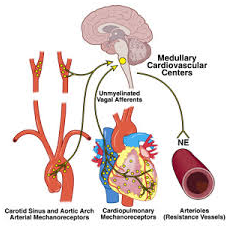Neurocardiogenic Syncope Causes, Symptoms, Diagnosis and Treatment

What is Neurocardiogenic Syncope?
Neurocardiogenic Syncope is caused by a drop in blood pressure, quickly followed by faster than slower heart rate resulting in poor blood and oxygen flow to the brain which results in temporary loss of consciousness.
Neurocardiogenic Syncope (NCS) is also referred to as vasovagal syncope or neurally mediated syncope. It is also called fainting.
Causes of Neurocardiogenic Syncope
Cardiac Causes
- Structural cardiac or cardiopulmonary disease (aortic stenosis, mitral stenosis, pulmonary stenosis, left atrial myxoma, aortic dissection, acute myocardial infarction, cardiac tamponade, pulmonary embolism, obstructive cardiomyopathy)
- Cardiac arrhythmias (tachyarrhythmias, bradyarrhythmias)
- Neurally mediated syncopal syndrome (includes neurocardiogenic or vasovagal syncope, carotid sinus syncope, and situational syncope)
- Orthostatic (or postural) hypotension
Metabolic Causes
- Hypoxia
- Hypoglycaemia
- Hyperventilation
Psychiatric Causes
- Somatisation disorders
- Hysteria
- Panic
- Fright
Neurological causes
- Seizure disorders
- Transient ischaemic attacks
- Subclavian steal syndrome
- Normal pressure hydrocephalus
Symptoms of Neurocardiogenic Syncope
The following signs and symptoms may precede a fainting episode:
- A feeling of heaviness in the legs
- Blurred vision
- Confusion
- Feeling warm or hot
- Lightheadedness, dizziness, a floating feeling
- Nausea
- Sweating
- Vomiting
- Yawning
When a person faints, the following signs may be evident:
- The individual may be falling over
- The patient may be slumping
- The person may be unusually pale
- There may be a drop in blood pressure
- There may be a weak pulse.
Diagnosis of Neurocardiogenic Syncope
Diagnosing Neurocardiogenic Syncope often involves ruling out other possible causes of your fainting — particularly heart-related problems. These tests may include:
- Electrocardiogram.
- Echocardiogram.
- Exercise stress test.
- Blood tests
- Tilt table test
If no heart problems appear to cause your fainting, your doctor may suggest you undergo a tilt table test.
Treatment of Neurocardiogenic Syncope
If the fainting is found to be caused by an underlying health condition, that will need to be treated, which should help prevent syncoptic episodes.
- Treating Neurocardiogenic Syncope in the majority of cases no further treatment is needed. Avoid the triggers, such as long periods standing still, dehydration, and being in hot and stuffy places. This may help prevent future episodes.
- Injections and blood – if the sight or thought of injections or blood make a person feel faint, they should tell the doctor or nurse beforehand. The health care professional can then make sure the patient is in a safe position (lying down) before any procedure begins.
- Beta-blockers – this medication is primarily used for the treatment of high blood pressure (hypertension). However, it may help patients whose neurocardiogenic syncope interferes with their quality of life. The side effects of beta-blockers may include fatigue, cold extremities (hands and feet), slow heartbeat (pulse rate), nausea, and diarrhea. Although rare, the following side effects are also possible – erectile dysfunction(impotence, problems either getting or sustaining an erection), nightmares, and sleep disturbances.
By : Natural Health News




